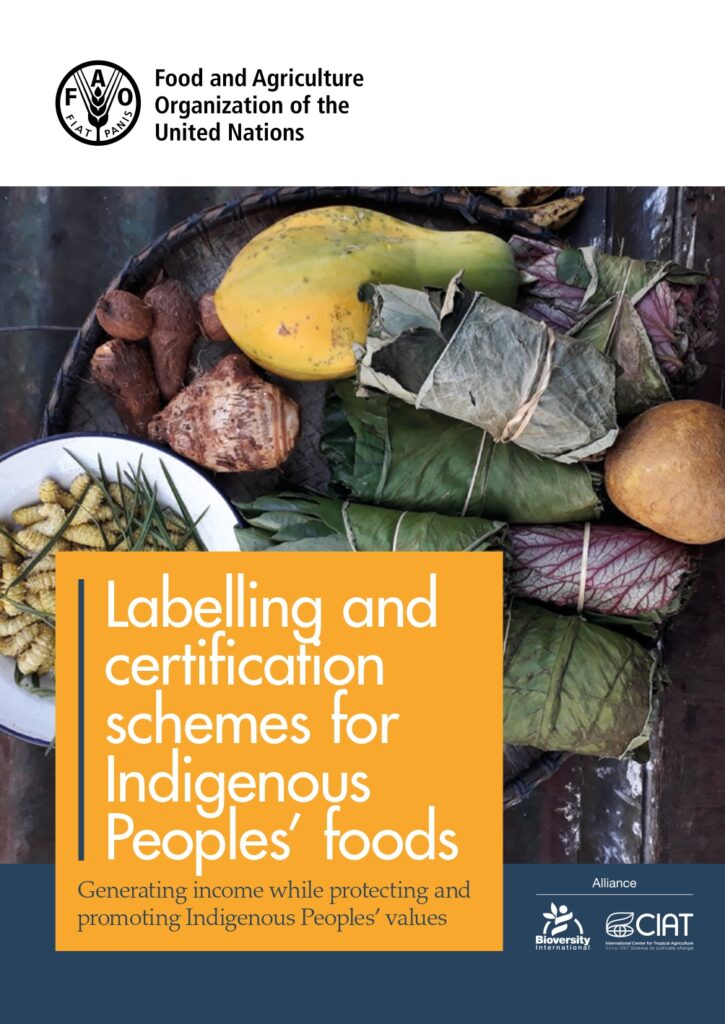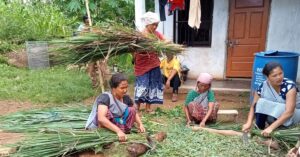Case study on “Participation Guarantee System in Meghalaya, India” included in FAO’s latest book “Labelling and Certification Schemes for Indigenous Peoples’ Foods.”
The Food and Agriculture Organization officially launched the book, “Labelling and Certification Schemes for Indigenous Peoples’ Foods” in a virtual event on the 12th of September 2022. Published by the FAO of the United Nations, and Alliance of Bioversity International and CIAT, the book seeks to explore means by which Indigenous Peoples can generate viable income for their livelihood while protecting and promoting Indigenous Peoples’ values.
Although Indigenous Peoples (IPs) remain the main protagonists in the struggle for the sustenance of the planet, they continue to be largely marginalized. Poverty is one of the biggest issues faced by IPs with 19% of the world’s poor made up of Indigenous Peoples in spite of their access to some of the richest biodiversities in the world. A major factor for this is the challenge faced by IPs in generating income with global trade largely inaccessible.

The book strives to recognize the rights and values of IPs and bring their voices and stories to life. It explores how Indigenous Food and Local Food Systems can be strengthened and supported while identifying different kinds of labelling and possible outcomes. Moko Morris, Māori people, New Zealand soil and Health Association/Hua Parakore food producer, speaking at the launch stated, “Just as western science has destroyed the world’s natural resources; it should support the Indigenous Peoples’ solutions to recover and preserve it”.
A NESFAS case study “Participatory Guarantee System in Meghalaya, India” is also included in the book, which was contributed by NESFAS’ Senior Associate, Janak Preet Singh. He shared that Indigenous Peoples’ food systems are an indicator of a healthy and well-functioning, nature-positive system. However, he lamented the fact that the products derived from this system which are “Unique and Diverse” are poorly recognized and remunerated under the dominant economic system: “Aspects such as communal values and conservation of biodiversity are poorly recognized in the market and it is important to have a certification and labelling system that recognises such aspects and provides fair returns to the producers”, he stated.
Other than the official launch of the book, many different opinions on means of promoting Indigenous foods and the producing communities through the use of specific labels were raised. Geographical Indication and tag of Indigenous foods as one way of labelling and certifying foods to procure income and provide recognition and self-esteem towards the producing communities were also discussed in the launch event.



